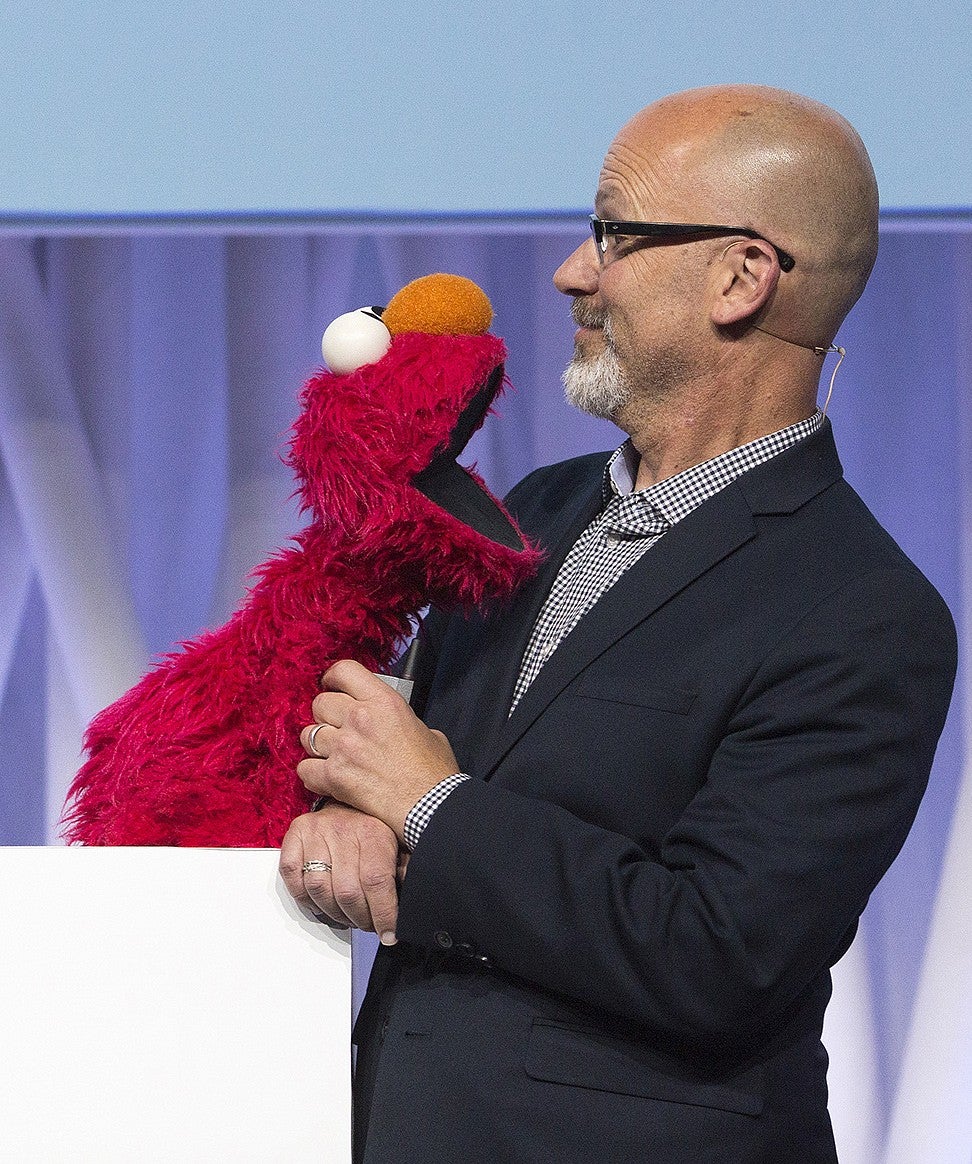Fluffy, playful and quite inquisitive, two Muppets upstaged one of the world’s leading neuroscientists at a recent conference, but it was all in good fun.
Neno and Kami, Muppets from the South African Sesame Street show, lent a furry hand to UO psychology professor and Philip H. Knight Chair Phil Fisher during a keynote address at a recent LEGO Idea Conference in Denmark. The fuzzy fellows were only too happy to help Fisher bring a complex idea down to earth.

Neno is the South African counterpart of Elmo. Kami is the first HIV-positive Muppet and has been effective at helping reduce the stigma associated with HIV and AIDS among children and families in Africa.
Fisher used the giggly puppets to help him explain how small changes in a learning environment, like moving desks around in a classroom, can change how kids learn.
“This set the stage for the rest of my talk, which was about how you could then use our measurement tools to determine whether this small change was making a difference — and for which children — and how these small changes could lead to bigger, more transformative changes over time,” Fisher said.
The LEGO Idea Conference brought together 300 international experts to talk about play and its critical link to thinking. The academics, practitioners, innovators, government officials and social entrepreneurs focused on what makes a quality learning experience for children growing up in adverse conditions.
Fisher is a leading expert on children’s neurobiological and psychological development. The director of the UO’s Center for Translational Neuroscience, he develops programs in low income and marginalized communities for improving children's healthy development, including their ability attach to caregivers, build relationships with peers and function in school.
—By Molly Blancett, University Communications

